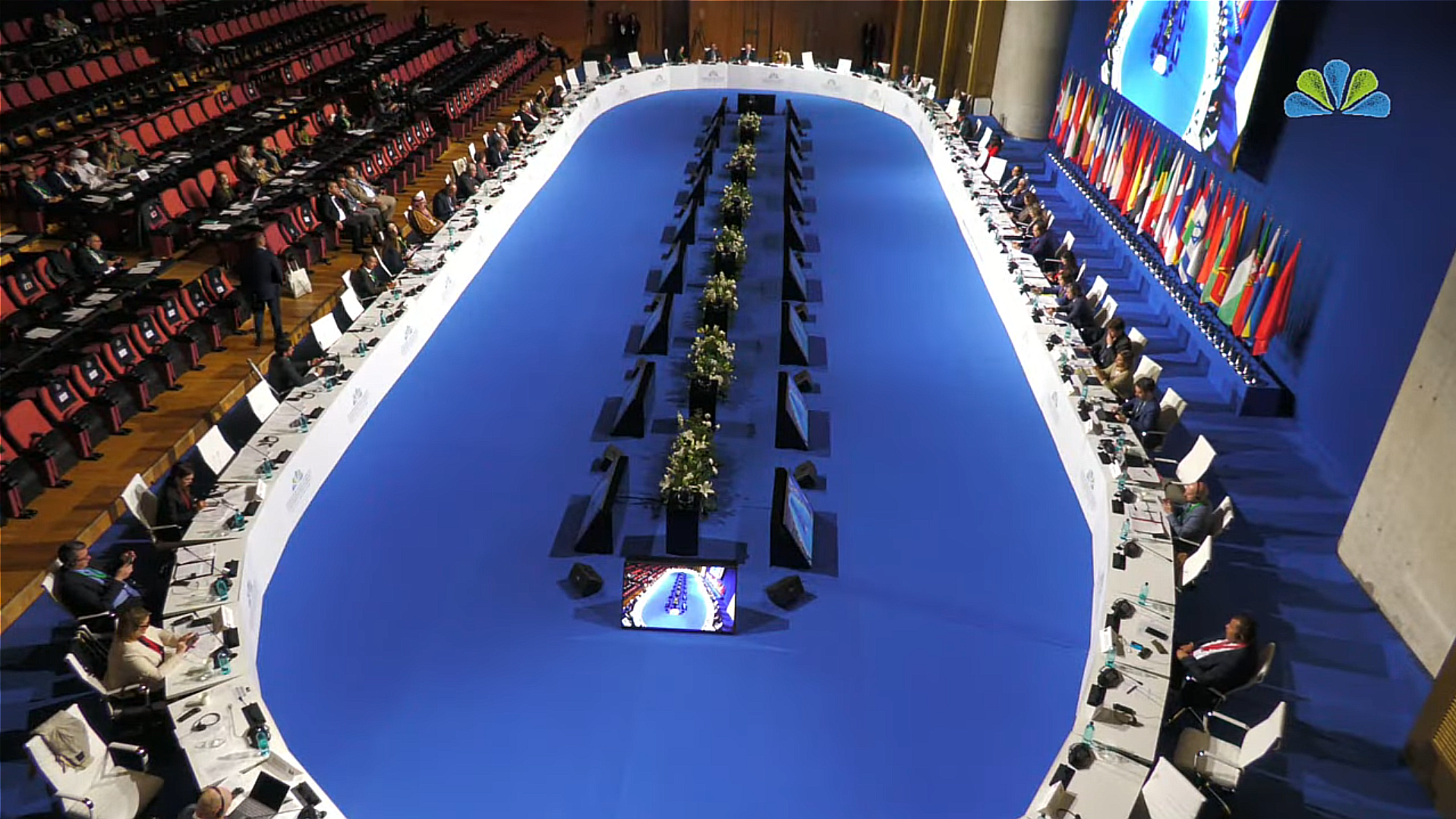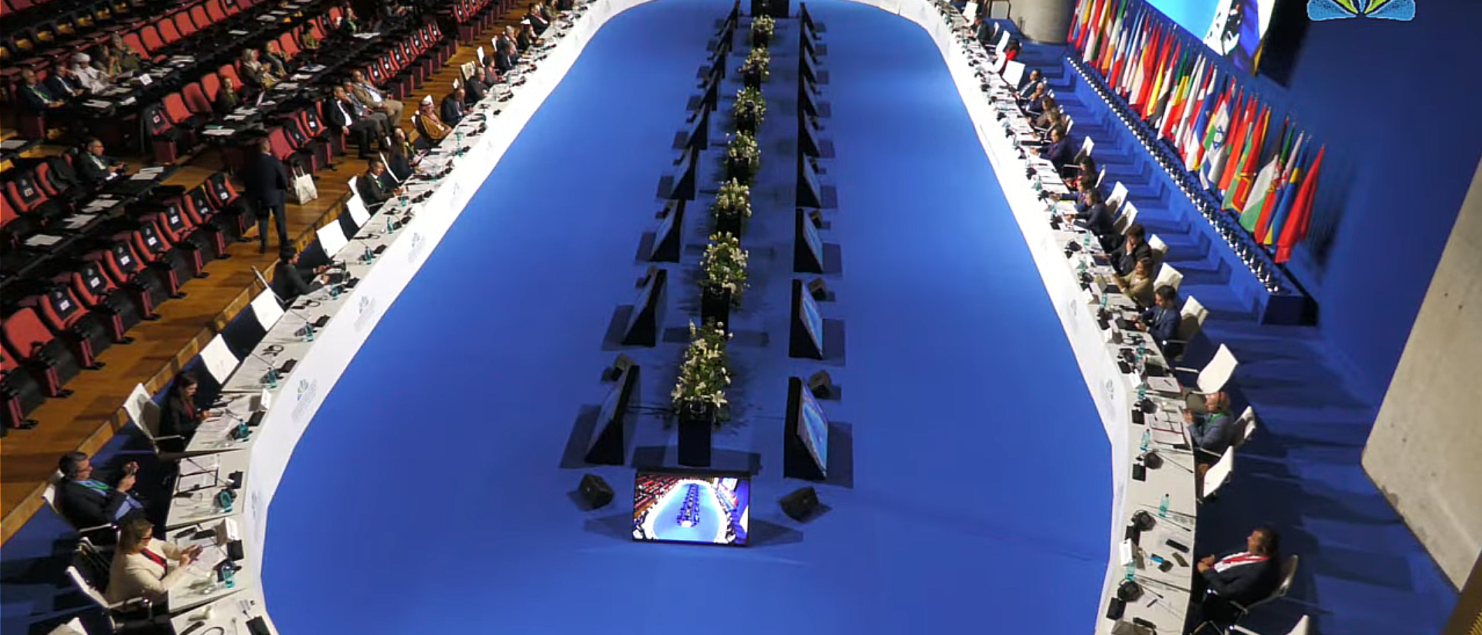Forum on the Future of the Mediterranean – youth and women for intercultural dialogue, education and employment

By Elise Cuny
Between 2 and 4 of April, the Forum on the Future of the Mediterranean took place in Granada, within the framework of the Spanish Presidency of the Parliamentary Assembly of the Union for the Mediterranean (PA-UfM). Elise Cuny participated as a member of the Anna Lindh Foundation’s delegation, representing culture Solutions at the session on “Youth Employment and Gender Equality in the Mediterranean Region”, sharing the stage with the State Secretary for Social Economy of the Spanish Government, the Rapporteur of the European Economic and Social Committee (EESC) on the Opinion “Youth involvement in social and civil dialogue in the Mediterranean region“, the Gender Equality Programme Manager at the Social and Civil Affairs Division of the Union for the Mediterranean, and the moderator, the Vice-President of the European Parliament, Ms Pina Picierno. Find below her contribution during the debate, and watch the recording here.
“Thank you, Madam Vice President, esteemed delegates,
I am honoured to contribute to the Forum on the Future of the Mediterranean as youth representative with the Anna Lindh Foundation delegation and as Chair of the association culture Solutions engaged in informing on the essential role and place of culture in European external action and in international relations.
From the start of the Euro-Mediterranean partnership in 1995, cultural cooperation was established as a pillar, on an equal footing with political dialogue and economic and financial cooperation, with the Barcelona declaration calling for a “partnership in social, cultural, and human affairs.” The role of culture for youth wellbeing and gender equality is important to remember in these times of great geopolitical turmoil, wars and rapid changes, affecting countries and cultures, threatening cultural and natural heritage, and challenging civil societies.
A common space for honest discussion among civil societies and genuine intercultural dialogue should never be taken for granted. The work accomplished by the Anna Lindh Foundation is a long-term effort, carried forward by youth who believe in multilateralism and diplomacy—like all of us gathered around this table. The aspirations and ideals advanced over the last two days during this forum- peace, stability, prosperity, but also equality and empathy— will not become reality without the support for civil societies to exist, flourish, and have a voice.
Across the Mediterranean, we see powerful youth and women-led initiatives protecting and promoting local cultures, quality education, and values for active citizenship, including projects in primary and secondary schools. These initiatives are essential in supporting states addressing the challenges of unskilled work, lack of employment, schools’ drop out, equality of opportunities for girls, but also the rise of hatred and divisions in our societies. Even when political and financial support is missing, civil society organisations remain— keeping societal good and shared values as their compass.
No further proof is needed to showcase the impact of a healthy and thriving space for dialogue for the Mediterranean. Civil society never collapses, and we should acknowledge here what a world without societal harmony and intercultural dialogue would look like. It is high time the policy framework steps up its recognition of cultural value. The coordinated efforts of the EU to safeguard and support the Ukrainian cultural sector and cultural heritage in response to the Russian full-scale invasion and aggression should serve as inspiration and exemple in the Mediterranean too – with clear prospects for education, employment, and sustainable economy.
Hence, the Pact for the Mediterranean should recognise youth and women-led civil society organisations, artists and cultural professionals as essential guardians of the validity and continuity of the Euro-Mediterranean partnership, in promoting cultural heritage transmission and culture for quality education. They should be supported by addressing essential obstacles to mobility, independence, dialogue, financial opportunities and by truly listening to this plurality of voices across the region to fully reveal their potential for youth employment and gender equality.
Thank you.”
The views expressed in this article are personal and are not the official position of culture Solutions as an organisation.

